#115 - 12 Critical Checks Before Using Any AI Tool in Your Research
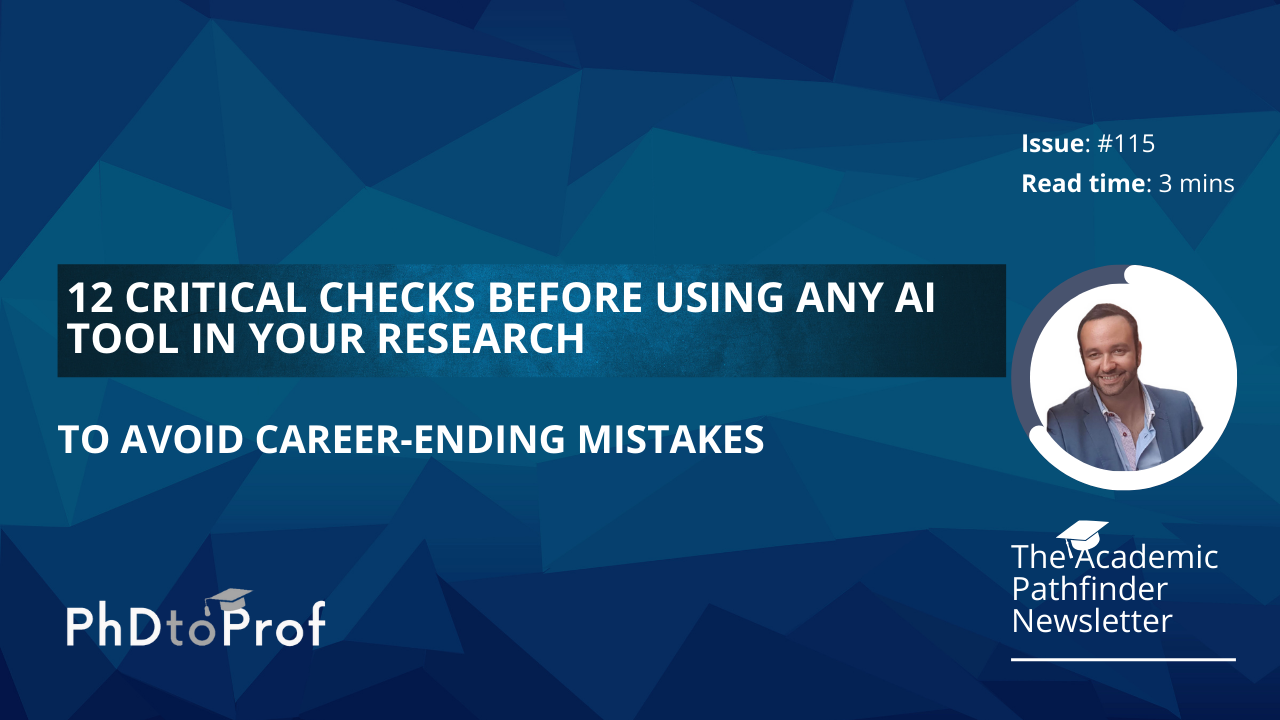
Today, I'm sharing my comprehensive 12-point ethics checklist that has helped dozens of researchers safely integrate AI into their work while avoiding the pitfalls that have damaged other academic careers.
24 September 2025
Read time: 3 minutes
Supporting our sponsors directly helps me continue delivering valuable content for FREE to you each week. Your clicks make a difference! Thank you. Emmanuel
Validate Research Questions in Minutes Instead of Months with Consensus
Stop endless literature searching. Consensus AI analyzes millions of peer-reviewed papers to test your research questions against existing scientific literature and reveal where the evidence actually stands within minutes.
Transform research uncertainty into evidence-based confidence. Use the Consensus Meter to see scientific agreement visually, export comprehensive reports for your literature review, and share validated research directions with your supervisor.Use AI to accelerate research validation while you focus on original thinking and novel contributions.
Start with Consensus free, or unlock 1 month of Pro free using my link at https://get.consensus.app/phdtoprof
AI tools are transforming academic research, but using the wrong ones can destroy your credibility, violate research ethics, or compromise your data security.
Most researchers jump into AI tools without proper evaluation, only discovering problems after it's too late to fix them.
What if you could evaluate any AI tool systematically to ensure it meets the highest standards for academic research?
Today, I'm sharing my comprehensive 12-point ethics checklist that has helped dozens of researchers safely integrate AI into their work while avoiding the pitfalls that have damaged other academic careers.
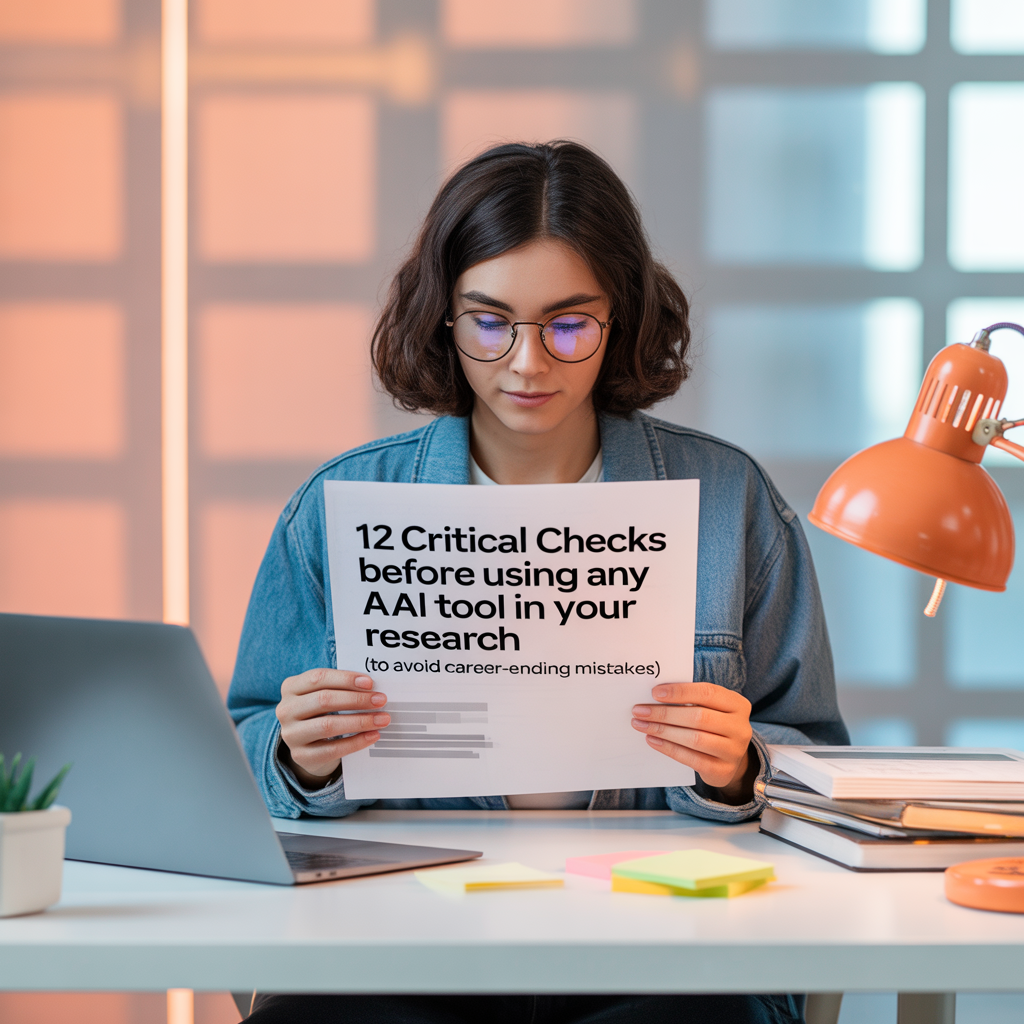
Last year, I watched three colleagues face serious consequences from poorly chosen AI tools.
One had their paper rejected for undisclosed AI bias.
Another violated data privacy regulations, and a third discovered their AI tool was producing systematically inaccurate results after six months of use.
These experiences taught me that enthusiasm for AI isn't enough.
You need a systematic way to evaluate tools before using them.
Since developing this 12-point checklist, I've helped dozens of researchers adopt AI tools safely while avoiding the costly mistakes that have derailed others.
Accuracy and Reliability Checks
Before trusting any AI tool with your research, you must verify its accuracy and understand its limitations.
Check #1: Test with Known Data - Run the tool on data where you already know the correct answers.
If it can't handle simple cases accurately, don't trust it with complex research questions.
Check #2: Verify Output Sources - Can you trace AI recommendations back to reliable sources?
Tools that can't explain their reasoning are too risky for academic use.
Check #3: Assess Error Patterns - Test the tool multiple times with similar inputs.
If results vary significantly or show concerning patterns, the tool isn't reliable enough for research.
Bias and Fairness Evaluation
AI tools often perpetuate biases present in their training data, which can compromise your research integrity.
Check #4: Test for Demographic Bias - Run identical queries using different demographic descriptors to see if the tool produces biased results based on race, gender, or other characteristics.
Check #5: Evaluate Subject Matter Bias - Check whether the tool favours certain theoretical approaches, methodologies, or conclusions in your field over others.
Check #6: Assess Geographic and Cultural Bias - Test whether the tool better understands research contexts from certain countries or cultures while misrepresenting others.
Privacy and Security Assessment
Protecting your research data and maintaining confidentiality is crucial for ethical research practice.
Check #7: Review Data Storage Policies - Where does the tool store your data? Who can access it? How long is it kept?
Never input sensitive data without clear privacy protections.
Check #8: Check Access Controls - Can other users see your inputs or outputs?
Some AI tools share data across users in ways that compromise research confidentiality.
Check #9: Verify Compliance Standards - Does the tool meet your institution's data security requirements and relevant regulations like GDPR or HIPAA?
Academic Integrity Safeguards
AI use must maintain the highest standards of research integrity and transparency.
Check #10: Plan Documentation Methods - Can you adequately document how you used the tool for replication purposes?
If not, it may not be appropriate for publishable research.
Check #11: Assess Intellectual Property Issues - Who owns the output generated by the tool?
Make sure using it won't create copyright or ownership problems for your research.
Check #12: Evaluate Disclosure Requirements - Can you transparently explain the tool's role in your research to journals, funders, and readers?
If disclosure would be problematic, reconsider using the tool.
Implementation Strategy
Use this checklist systematically rather than rushing to adopt new AI tools.
How to implement:
- Before using any new AI tool, go through all 12 checks systematically.
- Document your findings and keep records of how you verified each criterion.
- Only proceed if the tool passes all relevant checks for your specific research context.
- Create a simple spreadsheet with these 12 criteria and score each tool you evaluate.
This systematic approach prevents emotional decisions and ensures consistent evaluation standards.
Ongoing Monitoring
AI tools change frequently, so your evaluation process shouldn't be a one-time activity.
How to maintain standards:
- Re-evaluate tools every six months or whenever they release major updates.
- Monitor research literature and institutional policies for changing standards about AI use in academia.
- Keep track of any problems you discover during use and update your evaluation criteria based on new experiences.
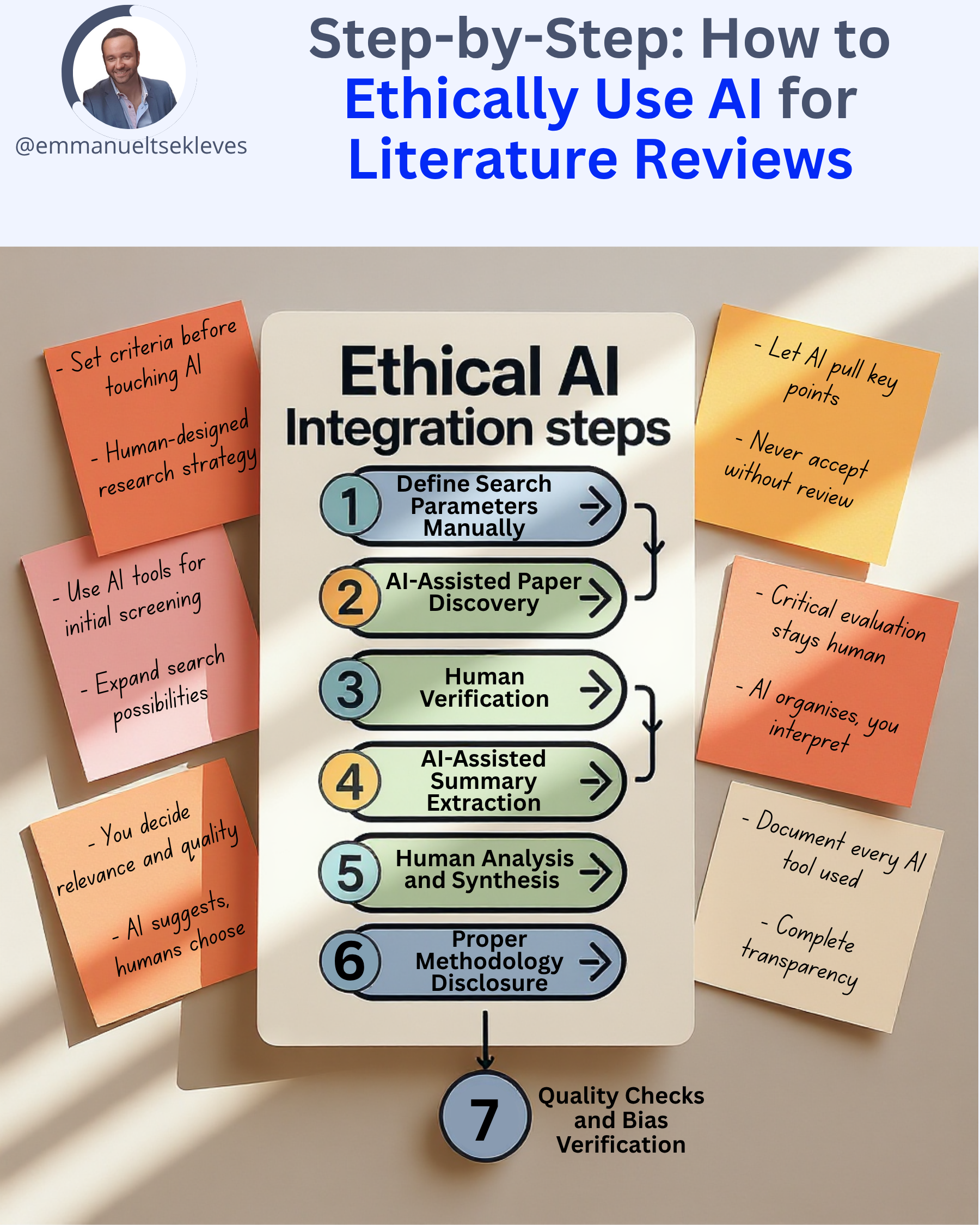
Key Takeaways:
- Test thoroughly for accuracy and bias before trusting any AI tool with your research data or analysis
- Verify privacy and security protections to ensure your research data remains confidential and secure
- Plan for transparency and documentation from the beginning to maintain academic integrity standards
→ Your Action Plan for This Week
- Download and customize the 12-point AI ethics checklist for your specific research field
- Evaluate one AI tool you're currently using or considering using this comprehensive framework
- Create a documentation system for tracking how you use AI tools in your research
Which AI ethics concern worries you most about your current research? Reply and share your specific questions!
Well, that’s it for today.
See you next week.
Whenever you're ready, there are 3 ways I can help you:
1. Get free actionable tips on how to complet your PhD and secure a tenure-track job in academia by following me on X, LinkedIn me Instagram and BlueSky
2. Take my proven Academic Job Accelerator Program that has helped hundreds of researchers secure academic positions, and start with my free training videos to learn the exact strategies hiring committees respond to.
3. Join my Premium 1:1 PhD Mentorship Program. I provide exclusive, results-driven support for professionals who need fast-track guidance on proposals and thesis completion. DM or email me to learn more about this premium consultancy for serious professionals ready to succeed quickly.

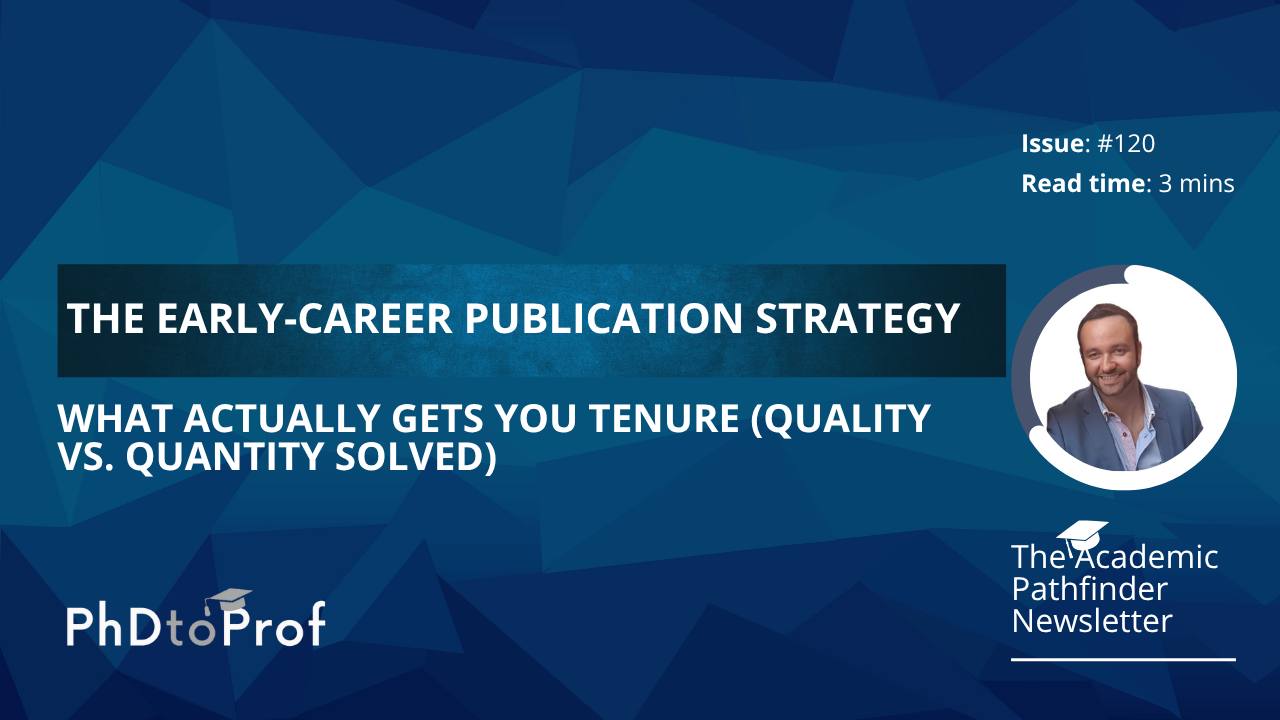
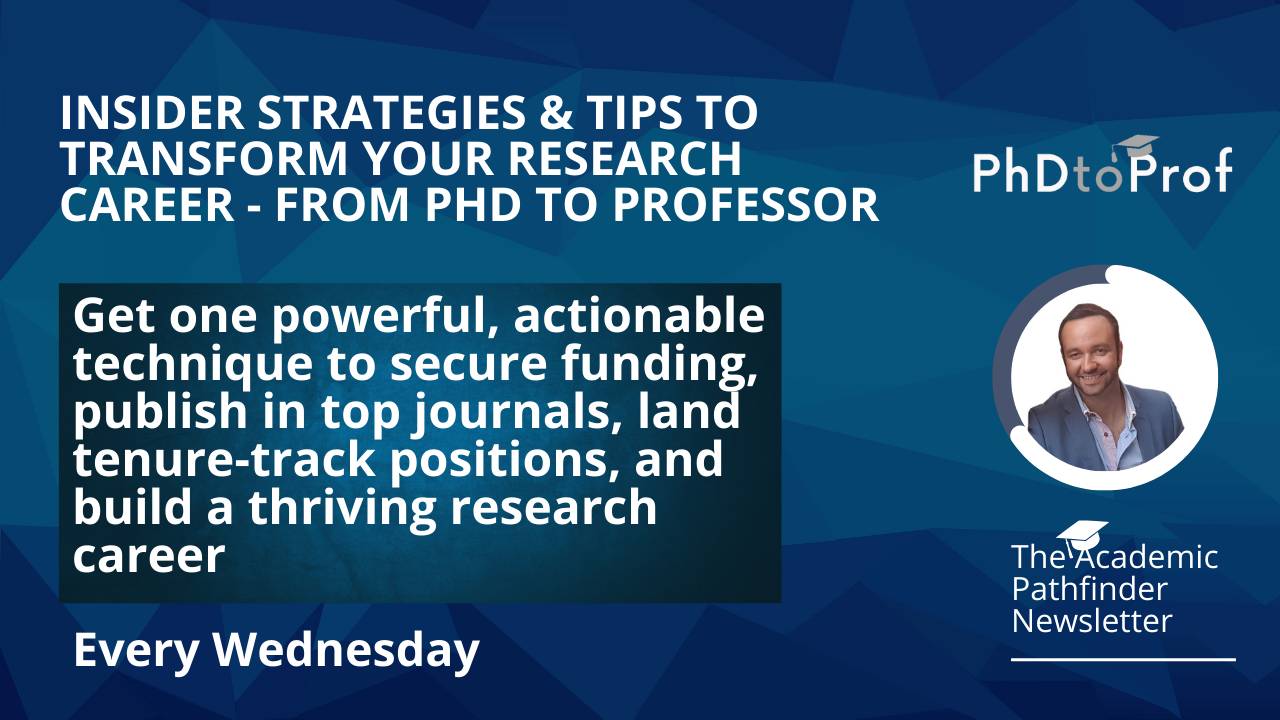
Responses